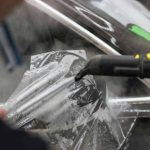Introduction:
Window tinting is a popular choice for many car owners looking to enhance the appearance and functionality of their vehicles. Despite its widespread use, numerous myths and misconceptions persist about window tinting. In this blog, we will debunk common myths and provide clear, factual information about window tinting, helping you make an informed decision.
Myth 1: Window Tinting is Illegal
Fact: One of the most pervasive myths is that window tinting is illegal. The reality is that window tinting laws vary by state and country. In Florida, for example, the law allows for a certain level of tint on car windows:
- Front Side Windows: Must allow more than 28% of light in.
- Back Side Windows: Must allow more than 15% of light in.
- Rear Window: Must allow more than 15% of light in.
Understanding your local regulations ensures you can enjoy the benefits of window tinting without running afoul of the law.
Myth 2: Window Tinting is Just for Aesthetics
Fact: While window tinting certainly enhances the visual appeal of a vehicle, its benefits extend far beyond aesthetics:
- UV Protection: Quality window films can block up to 99% of harmful UV rays, protecting both passengers and the car’s interior from sun damage.
- Heat Reduction: Tinted windows reduce heat inside the vehicle, improving comfort and reducing reliance on air conditioning, which can enhance fuel efficiency.
- Glare Reduction: Tinting minimizes glare from the sun and headlights, improving driving visibility and safety.
Myth 3: Tinted Windows Make Driving at Night Dangerous
Fact: A common concern is that tinted windows reduce visibility at night, making driving dangerous. However, when legal and high-quality window tints are used, they can actually reduce glare from headlights and streetlights, enhancing night driving visibility. Properly applied window tint does not significantly impede the driver’s ability to see the road at night.
Myth 4: Window Tinting is Only for High-End Cars
Fact: Window tinting is beneficial for all types of vehicles, not just luxury models. Whether you drive a compact car, a family SUV, or a high-end sports car, window tinting can offer protection, comfort, and improved aesthetics. The benefits of UV protection, heat reduction, and enhanced privacy are valuable for any vehicle owner.
Myth 5: Window Tinting Damages Windows
Fact: When professionally installed, window tinting does not damage car windows. In fact, it can protect your windows from scratches and other minor damage. Professional installers use high-quality materials and techniques to ensure a smooth, bubble-free application that enhances the durability and longevity of both the tint and the windows.
Myth 6: All Window Tints are the Same
Fact: There is a wide variety of window tinting films available, differing in quality, performance, and price. Cheaper tints might not offer the same level of UV protection, heat reduction, or durability as higher-quality films. Investing in a reputable brand and professional installation ensures you get the most out of your window tinting.
Myth 7: DIY Window Tinting is Just as Good as Professional Installation
Fact: While DIY window tinting kits are available, they rarely match the quality and finish of professional installations. Professional installers have the expertise and tools necessary to apply the tint smoothly and efficiently, avoiding common issues like bubbles, peeling, and uneven application. Additionally, professional installations often come with warranties, providing peace of mind and long-term value.
Conclusion:
Window tinting offers a range of benefits, from UV protection and heat reduction to improved aesthetics and driving comfort. By debunking these common myths, we hope to provide you with a clearer understanding of what window tinting can do for your vehicle. At Turbo Tint Orlando, we specialize in high-quality, professional window tinting services that comply with local regulations and meet your specific needs. Contact us today to learn more and get a free quote for your vehicle.











